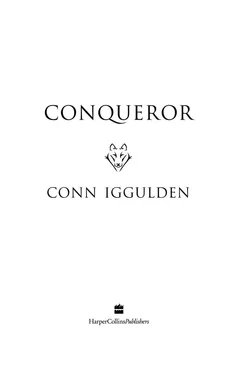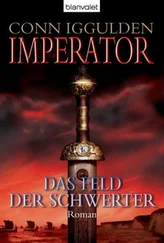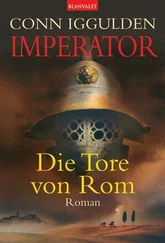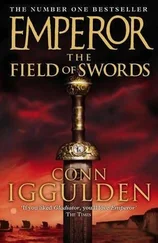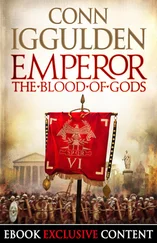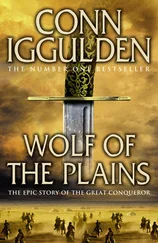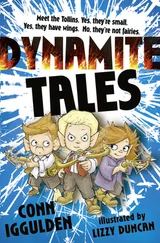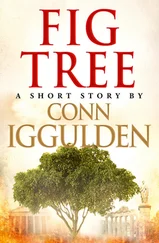Yao Shu chuckled to himself. Mongke had not inherited that sense of joy. It had drawn men to Genghis as they sensed a vibrant life in him that Yao Shu had never seen anywhere else. Certainly not in the grandson. In Mongke’s earnest efforts to be a worthy khan, he showed no true understanding. Thinking back through the generations, Yao Shu worried that he had wasted his life, drawn like a moth to a lamp, throwing his years of strength away for nothing.
The lamp had been extinguished when Genghis died. Yao Shu had thought many times since then that he should have gone home at that moment, the dream over. He would have counselled a stranger to do just that. Instead, he had waited to see what would happen, taking tasks upon himself until Ogedai trusted him with everything.
Yao Shu stared out at the massed ranks of horsemen in all directions. He had made the decision at last to leave the court. No, Mongke had made it for him when he whipped Chin scholars out of Karakorum and showed it was no longer a place where civilised men would be welcome. It had been almost a relief to begin his preparations for the long trip home. Yao Shu owned very little and had given most of his wealth away to the poor in Karakorum. He did not need much and he knew there were monasteries which would take him in as a long lost son. The thought of regaling Buddhist monks with stories of his adventures was appealing. He could even read from the Secret History to them and give them a glimpse of a very different world. He doubted they would believe half of what he had seen.
Back in Karakorum, Yao Shu had been looking sadly at his collection of books when a messenger had arrived with news of Kublai’s destination. The old man had smiled then at the vagaries of fate. It had solved his problem of how to travel safely for thousands of miles east. He would go with Kublai to Chin lands and then one night he would get up from a fire and walk away from all his memories. He was not bound by oath to any living man, and there was a kind of balance in having the Mongols take him home, as they had once brought him out of the lands of his birth.
It had not happened. Over the months of conversation and travel, he had become fascinated again by Kublai, his interest sparked by the other man as he toured new estates in Chin lands and talked. Oh, how the man talked! Yao Shu had always known Kublai was intelligent, but his ideas and limitless curiosity had fired Yao Shu’s imagination. Thousands of new farms had been surveyed and marked out in just a few months. Kublai would be a landlord who took only a reasonable share and let his people prosper. Yao Shu hardly dared to believe he had finally found a descendant of Genghis who might love Chin culture as much as he did. On a spring evening, Yao Shu had reached a point where he knew an old monastery was barely thirty miles off the road and yet he had sat on his cart all night and not taken a single step towards it. One more year would not make too much of a difference to his life, he had told himself.
Now he was on the road to Ta-li, a Sung city, and once more, there was hope in his heart. He had seen Kublai spare forty thousand prisoners, and Yao Shu doubted the younger man even understood what an extraordinary event it had been. The orlok, Uriang-Khadai, still sulked in his ger, unable to understand why he had been shamed in front of his men. Yao Shu shook his head in wonder at the thought, desperate not be disappointed once again. Genghis had destroyed cities to send a message to anyone who might resist him. Yao Shu had despaired of finding anyone in his line who did not model themselves on the great khan.
Now he could not leave. He had to see what Kublai would do at the city. For the first time in decades, Yao Shu felt a sense of purpose and excitement. Kublai was a different animal from his brothers Hulegu and Mongke. There was still hope for him.
The region of Yunnan was one of the least populous in Sung lands. Just one city connected the distant territory with the rest of that far-flung nation, supported by a few thousand farms and barely a dozen villages and small towns. There had been no growth there in living memory, perhaps for centuries, and the benefits of peace were obvious. Kublai’s army passed through millions of acres of rich ground, given over to rice paddies or dry crops and a rare breed of long-horned cow that was said to produce the best beef for a thousand miles.
Ta-li city was girded around by high walls and gates, though a suburb of merchant houses gripped the inner city like moss on a stone. That part of Sung territory was a world away from the lands Genghis had conquered. No one there had ever seen a Mongol warrior, or any armed force beyond the soldiers of their own emperor.
Kublai stared across a scene of stillness and tranquillity, his vast army out of place. He could see the smoke of a thousand chimneys over the city, but the farmers had all left their crops and gone to its protection. The fields and outer suburbs lay abandoned, stretching as far as he could see.
The ground was dry and they were close enough to the city for those within to be watching in terrified silence. Kublai spoke an order to Bayar at his side and stayed where he was while it was relayed down the line of authority. The Mongol host dismounted and began to make camp.
Kublai watched his ger being assembled, beginning with the sections of wooden lattice bound together. Everything was done for him by a group of warriors, routine making them quick. They raised a central column and slotted slender roof poles into it, taking lengths of moist sinew from pouches to tie them all off. Finally, thick mats of felt were layered and bound, the small door fitted and a cooking stove carried inside. In just a short time, it was one of thousands appearing on the land, waterproof and warm. Chabi and Zhenjin came trotting up on the same pony, the boy’s arms clasped around his mother. Kublai held his arms wide and Chabi guided the mount close enough for Zhenjin to leap at his father.
Kublai grunted and staggered backwards as he took the boy’s weight.
‘You are getting too big for this,’ he said, holding him for a beat before lowering his son to the ground. Zhenjin already showed signs of his father’s height and his eyes were the same light gold that marked him as the bloodline of Genghis. Zhenjin stretched up to stand as tall as he could, making his father laugh.
‘I have your bow, Zhenjin. Bring it out of the ger and I’ll help you practise.’
Zhenji gave a whoop and disappeared through the door. Kublai let the smile remain. He felt the responsibility of being a father acutely. In time, Zhenjin would be his own man. Yet at that moment he was still a child, long-legged and gangly, with two teeth growing through in the front. Kublai was glad he had brought his family on the campaign. Uriang-Khadai’s wife and children were safe in Karakorum, but Kublai had not wanted to leave Zhenjin to Mongke’s care for so many years. He would have come home to a stranger.
Kublai nodded to the warriors as they bowed and hurried off to complete their own dwellings before dark. As Chabi dismounted and kissed him on the neck, his personal servants went inside with the first armfuls of cooking implements and a large metal pot for tea. Zhenjin could be heard asking them where his quiver was. Kublai ignored the voices, choosing to spend the last moments of daylight staring at the city he must take. His first.
Chabi slipped her arm around his waist. ‘I am pregnant,’ she said.
Kublai turned and held her at arm’s length. His heart leapt and he embraced her. Zhenjin’s older brother had died in infancy and another had been stillborn. It broke his heart to see once more the mingled hope and fear in her eyes.
‘This one will be strong,’ he said. ‘It will be born on campaign! Another boy? I’ll get the shaman to cast the bones. If it is a boy, I have been thinking of names.’
Читать дальше
Конец ознакомительного отрывка
Купить книгу
